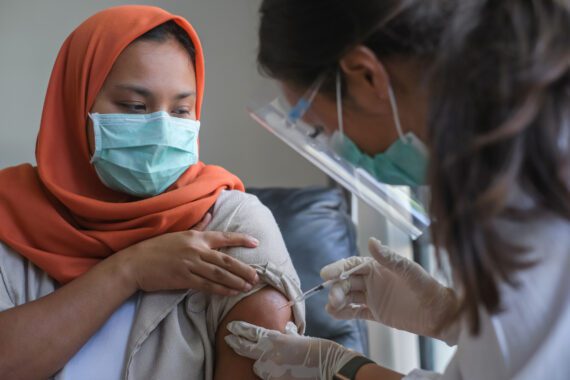By Rev. Najla Kassab
Christmastime is the most enjoyable season, but strangely the story that surrounds Christmas is difficult.
It is a story of a child born during a difficult situation. Because there is no room in the inn, Jesus is born in a manger—with his mother, Mary, wrapping him in swaddling clothes (Luke 2:7). Jesus’ entrance into this world reflects the story of those who have been marginalized, deprived, humiliated, and have struggled for a dignified life.
Today, that fragility of human life continues. Back in August, a large blast in Beirut killed about 200, injured around 6,500, and left 300,000 homeless and hungry. Among those who were affected were people who had never before experienced hunger and understood for the first time what it meant to be fragile and hungry and to have no room in the inn.
In the midst of all the pain, many got involved to lessen the pain. Youth helped to clean the shattered glass from broken homes. Groups were formed to provide hot meals for those who were hungry. People opened their homes for shelter. The world community got involved too. When it looked hopeless all around us, there was hope because people recognized the blessings in helping others. They joined the journey of justice—providing dignity for all, sharing what they had, and sacrificing their comfort so all may have life abundant.
As the world faces poverty and hunger today, hope lies in the people who are ready to be the voice of the struggling. Those who will make sure that there is a place in the inn. And where their love is shared unconditionally.
Christmas is a time to sit around the table and make sure that no one is left out—that the hungry are fed and that those suffering are embraced. We all need to recognize that we are not the ones who invite people around the table but rather we are invited ourselves. The table is the Lord’s, and what we own is to be shared.
In one of the damaged hospitals in Beirut, a nurse shared her story about how she rescued a set of triplets. When a wall fell the nurse held the babies close to her chest and made sure that they looked at her face. “I did not want them to see the damage,” she said. “I wanted them to look in my eyes to get strength from my face.”
During this season, Jesus invites us to look closely at each other’s faces and get strength from our partnership for a better tomorrow. In the process we do not merely see each other’s faces but the face of God as well. Emmanuel is with us.
Rev. Najla Kassab is president of the World Communion of Reformed Churches and director of the Christian Education Department in the National Evangelical Synod of Syria and Lebanon.



